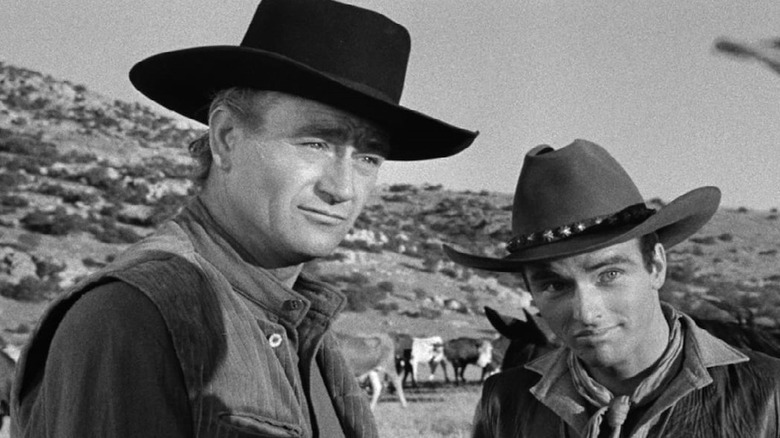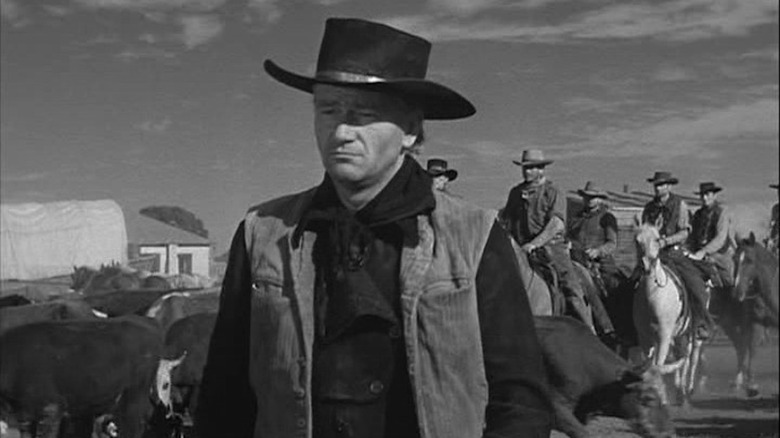John Wayne Wasn't Willing To Be The Butt Of A Joke For Howard Hawks' Red River
10 years after his breakout performance in John Ford's "Stagecoach," John Wayne found himself the object of some critical derision due to his insistence on giving his audience exactly what they wanted. On one hand, who could blame him? As long as people kept lining up to see him play strong, stolid heroes, why invite box office trouble by going against type, especially when two of the finest directors on the planet, Ford and Howard Hawks, were keen to continue cashing in on his popularity?
It was a pretty nifty arrangement for Wayne, who could work small, yet striking variations on his swaggering persona with two trusted, talented collaborators. He respected these men, and was therefore open to suggestions he might've shot down had they been offered by a studio hack. But even with Ford and Hawks, there were lines the Duke was unwilling to cross. Hawks learned this for himself while directing Wayne in the 1948 classic "Red River."
Don't ask the Duke to sacrifice a finger for the sake of a laugh
Howard Hawks was already asking a tad extra of John Wayne for his portrayal of Thomas Dunson, an Ahab-like rancher determined to drive his cattle from Texas to Abilene, Kansas. Dunson is a hard man whose pitiless treatment of his men leads his adopted son, Matt (Montgomery Clift), to foment a mutiny and exile him from the drive.
According to Allen Eyles' biography "John Wayne," Hawks was eager to inject a bit of humor into Wayne's performance by having Dunson get drunk so his finger, which had been "mangled between a saddle horn and a rope," could be amputated. Alas, Wayne had stretched as far as he was comfortable as Dunson, and nixed the idea. Hawks acquiesced, but not before informing the Duke that he'd deploy the bit later with a more versatile actor (that wound up being Kirk Douglas in "The Big Sky").
Nevertheless, Hawks enjoyed collaborating with Wayne (11 years later, they'd come together for the masterful "Rio Bravo"), and was quick to praise the star's filmmaking acumen. Per Eyles, Hawks said:
"Wayne is like a big cat on his feet, he thinks quickly and he thinks right. Also he contributes to what other people do. If he sees somebody who is not moving he tells 'em to move, and it becomes part of the story."
Just don't ask him to look like a dope who doesn't know how to rope cattle for the amusement of an audience. Because it was his audience, and he knew they didn't want to see such nonsense (until 1969's "True Grit").

